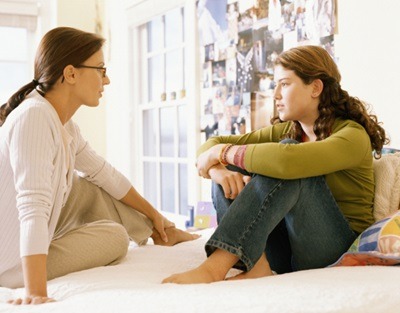
The family effects of confinement derived from the Pandemic, in addition to those resulting from job loss and the economic crisis, have been especially significant for single-person households and for families with children.
In the former, for example, 25.7% of Spanish households, the experience of loneliness has had harsh consequences. And in the cases of elderly dependents, the suspension of care resources, such as day centers or home help, and the experience of fear and isolation have accelerated cognitive decline. This has implied for their relatives, in many cases, important difficulties in their care.
The second group of households for which confinement has been a stress test, has been those of parents with children (33.4% of all Spanish households), and even more single-parent households (10.1%).
Overnight, these families transformed their home into a school and an office, with parents teleworking and children telestudying, and with the loss of the fundamental support that grandparents give, that, together with school, are essential for reconciling life work and family.
Some valuable lessons
The total confinement has left some lessons: the difficulty and importance of giving each one his own – to work and to caring for people and the home – and the consequent right to disconnect.
Also the joint responsibility between men and women as an essential condition of conciliation – mothers have been, also in confinement, the most dedicated to care – and the experience of an intense family coexistence that has sometimes caused conflicts, but has also allowed that relationships narrow.
What we have assimilated
For these households, the “new normal” – with the children attending school and the parents attending work with greater presence – leaves some certainties:
– Telecommuting and online teaching are here to stay.
– Labor flexibility is a key factor that allows the care of children and adults.
– Work presence in many jobs is a thing of the past and work for objectives is the future.
– The appearance of a more homely family leisure and, of course, the social drama of job loss in many families.
– The increase in poverty and social exclusion.
In the case of families with older children, their age of emancipation will be further delayed, according to a recent study, the Pandemic is sinking youth emancipation: only 17.3% of young people live emancipated. The feeling of overwhelm and frustration with which many parents live in this situation is understandable. Before it is even over, the Pandemic has already forced the seams of our social, economic and welfare structures, starkly exposing their weaknesses.
What we must promote

The reconstruction task that lies ahead should not be undertaken without reflection on conciliation measures. They must be articulated with a broader approach, offering sufficient flexibility to face family responsibilities that extend well beyond the moment of birth of the children, rather having to cover very diverse contingencies and that also increasingly include care to seniors and dependents. Consolidating teleworking, to which the Pandemic has contributed, can be a good tool.
Dignify and revalue care tasks to offer quality services guarantees the well-being of those who are most underprivileged, and grant families freedom of choice. The improvement of the benefit for dependent children and the minimum vital income can be ways to recognize part of this work, unpaid, but essential for our society.
The Co-responsibility factor is a pending subject. Some of the studies on confinement detect a greater willingness of men to do tasks that they did not do before (using a washing machine, cooking, shopping …). But the pace is slow – the ILO estimates that the gender gap in terms of time spent on unpaid care work will not close until at least the year 2228– and the overload suffered by women has physical and emotional consequences. This is a very important drag on their professional careers.
In the long term, the tension suffered by families due to difficulties in reconciling has other harmful effects: studies indicate that the “demographic winter” that Europe is experiencing is far from over, and in Spain the population is expected to shrink by 2050 three million inhabitants, which could become 23 million less in 2100.
Not everything is bad
As was the case with the 2008 economic crisis, families continue to be the main source and reference of individuals and the Pandemic offers opportunities to strengthen these bonds: greater involvement of parents in the education of their children, time to live and share and recognition of the vulnerability of the elderly and their needs.

